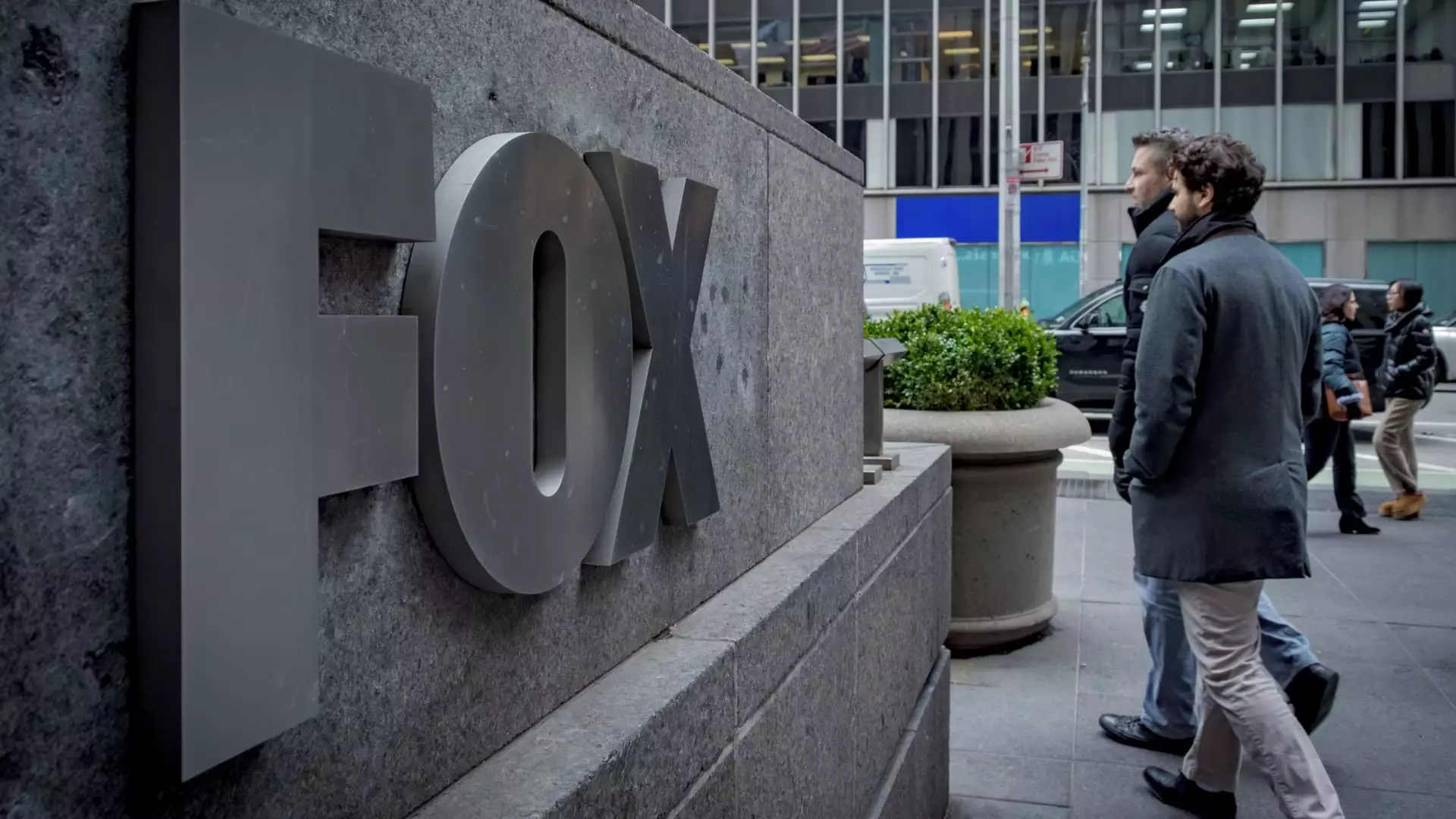With the age of cable television gradually waning, major players are scrambling to establish their footholds in the competitive streaming market. Fox Corp. is no exception, recently announcing its impending direct-to-consumer service, Fox One, set to launch just in time for the National Football League season. Fox CEO Lachlan Murdoch’s ambitious reveal during a quarterly earnings call illuminates the company’s intent to reshape its presence in this rapidly changing landscape, but it also evokes skepticism about the long-term strategy. Is Fox One a forward-thinking step or a desperate attempt to cling to relevance?
Pricing Strategy: A Cautionary Approach
Murdoch’s remarks on pricing were particularly telling. By indicating that rates will align with traditional wholesale pricing—the rates pay-TV distributors pay to offer its channels—Fox seems to be taking an unnecessarily cautious approach. The phrase “healthy pricing” might sound reassuring, yet it raises questions about accessibility. Streaming has often thrived on competitive pricing structures, enticing audiences with affordable options and flexible packages. Will Fox’s heavy price tag deter potential subscribers who might be disillusioned with cable television prices in the first place?
Murdoch’s insistence on avoiding a “failure” of attracting connected subscribers may seem prudent; however, the fear of losing traditional cable customers reflects an outdated mindset in an industry where evolution is essential. By tethering its streaming service to traditional pricing models, Fox risks alienating a growing base of lighter viewers who favor mobile and on-demand access.
The Audience Dilemma: Juggling Traditional and New Consumers
In his comments, Murdoch stated, “We do not want to lose a traditional cable subscriber to Fox One,” which must surely raises eyebrows among those in the streaming sector. This sentiment speaks volumes about Fox’s reluctance to fully embrace a new consumer segment that prefers flexibility over traditional cable bundles. While it’s certainly wise for Fox to want to maintain its legacy audience, steadfast adherence to past models might stymie its potential for growth and innovation. Streaming is designed for agile consumption; thus, a service that prioritizes traditional subscribers over adaptive strategies may miss the mark.
Moreover, Merely bundling Fox One with other distributors, as Murdoch suggested, indicates a lack of confidence in the service’s standalone appeal. This reliance on bundling could limit Fox’s ability to define its unique value proposition in an already crowded market, where distinctive content and user experience are paramount.
Riding the Super Bowl Wave: A Temporary Boost?
Fox’s quarterly revenue report, which boasted a significant lift attributed to the Super Bowl airing, generates enthusiasm, yet this bubble might be prone to bursting. The impressive 65% increase in ad revenue—highlighted during a monumental broadcasting moment—portends a short-lived gain rather than a sustainable growth trajectory. The real questions loom over whether Fox can translate this windfall into enduring engagement with their new streaming platform.
While the prospect of leveraging high-profile events like the Super Bowl seems like an innovative strategy, relying on sporadic occurrences for stability is precarious. The music drops when the lights dim, and after the Super Bowl hype fades, will the viewer retention persist? If Fox fails to nurture its audience beyond blockbuster events, the viability of Fox One will dwindle significantly.
The Streaming Race: Behind the Curve
In the grand design of the streaming universe, Fox has found itself lagging astoundingly behind competitors like Warner Bros. Discovery and Disney. While these media behemoths have robust offerings and established direct-to-consumer subscriptions, Fox has floundered in creating a cohesive digital strategy. Tubi and Fox Nation, their scattered streaming ventures, cannot serve as the backbone for a forward-thinking streaming initiative.
The ambitious plans to roll out Fox One sound promising, yet the execution will be pivotal. Will Fox pull itself from the brink of irrelevance, or continue to flounder under the weight of conservative strategies in a market that demands boldness?
In a world where consumer preferences pivot faster than the rotating digital landscape, Fox cannot afford to be reactionary or hesitant. The stakes are high, and the clock is ticking. If Fox One is to be a success, a transformative mindset is essential, not just retrofitted pricing and splashes of Super Bowl brilliance.

